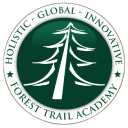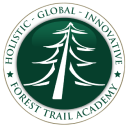Mass Communication
This course is designed to help students become more aware of the history of communication and how communication impacts our lives each day. Mass Communication looks at the role mass media has played, and continues to play, in American culture. Given the enormous effect of the media on our daily lives, Mass Communication seeks out how and why they reflect our social values. They also describe how public policy draws boundaries.
Anatomy and Physiology
This course is designed for those students who have taken biology and who wish to further their study of biology. The student will study the structure and function of the various cells, tissues, and integrated systems of the body. The course is designed to lay the groundwork then move into various human systems.
Astronomy
The purpose of this course is to enable students to develop and apply knowledge of the universe and compare the conditions, properties, and motions of bodies in space. Emphasis shall be placed on concepts basic to Earth, including materials, processes, history, and the environment.
Zoology
The course gives an introduction to zoology, with particular emphasis on the morphology and systematic of both vertebrates and invertebrates. In addition, the students should acquire basic knowledge in ethology, evolution, and human ecology (including an introduction to the biosphere and bio-diversity).
Career Planning
This course is designed to help students explore a variety of careers to consider and begin planning a career path. This course is great whether you already know what you want to do, or if you are undecided.
This course is designed to students become proficient in core areas to ensure success after high school. These skills include:
(1) Solving Problems and Thinking Skillfully
(2) Communicating Effectively, Applying Technology
(3) Working Responsibly
(4) Planning and Managing A Career
(5) Managing Resources
Psychology
This course focuses on the study of human behavior. As an introduction to the field of psychology, this course includes consideration of psychological principles, terminology, major theories, careers, methods of experimentation, and practical applications. Special topics include personality development, problem solving, group dynamics, and motivation.
Sociology
Sociology is an elective course designed to familiarize students with various cultures and the problems resulting from people living in groups. This course covers such topics as culture, sub-cultures, social institutions, collective behavior, social change, social deviation, the family, religion, racial and ethnic minorities, poverty, and crime. The latter portion of this course deals specifically with the pressing problems of our society, their causes, and possible solutions.
Computer Applications
This course will help students learn essential computer applications and Internet technology skills for personal, academic, and professional success. Students will effectively use a current Windows operating system and appropriate file management resources; develop and refine keyboarding skills on computers for speed and accuracy; apply word processing and desktop publishing functions to create, edit, manipulate, format, cite resources, print, and store common personal and business documents; apply spreadsheet functions to solve financial, mathematical, and statistical problems in business; create and edit charts and graphs to interpret spreadsheet data; design and create databases to extract, sort, calculate, and report business data; design, create, and execute an artistic and professional PowerPoint presentation which includes appropriate text formatting, graphics, animation, and public speaking skills, and use the Internet in an ethical manner to research, communicate, collaborate, and efficiently retrieve information. This course features an employment unit designed to help students explore their career interests, set career goals, analyze and develop their workplace skills, complete online employment applications, develop interviewing techniques, prepare resumes and other employment documents useful in assembling a career portfolio. Many other hands-on projects integrating multiple office applications are also highlighted within the curriculum.
Foundation of Business
This course, designed to provide a fundamental understanding of business management, will cover managing, marketing, financing and communicating within a business environment. Skills taught will include communication, problem solving and decision-making, economics, ethics, financials, and basic marketing principles. Students will experience applications supporting the Florida Math Standards. Assignments are individual and project based and will provide a solid foundation for future coursework.
Stress Management
This course is designed to help students become more aware of stress and how to manage stressful events in their lives.
Drivers Education
This course consists of 18 weeks of class work designed to teach the rules of the road and safe driving techniques. Driver simulators – an educational program for the development of proper perceptual and judgmental proficiencies – are used. Upon completion of the bookwork, a student will be eligible to take the “behind-the-wheel” training.
Television Production
This course is an introduction to the basic principles, procedures, and techniques of television production. The course includes video control, special effects, operation of cameras and editing machines, composition, lighting, staging, and directing, on-camera announcing and interviewing.
Statistics
This course is designed to provide a basic understanding of descriptive and inferential statistics. Topics include the measures of central tendency, standard deviation, combinations and permutations, probability, sampling, and various distributions. Emphasis is on applications of statistical concepts.
World Cultural Geography
World Cultural Geography encompasses both the physical and cultural aspects of the discipline. Early emphasis is placed on the development and appreciation of physical geographic knowledge including meteorology, geomorphology and cartography. These skills having been mastered, a cultural approach to the world/s various ethnic regions is addressed during the remainder of the year. Elements including political ideologies, religious beliefs, and unique cultural practices, as well as current situations of the world’s major ethnic regions, are discussed.
Personal Finance
This elective credit course provides the student with a review of the fundamental computational operations. At the same time, students will work with applications of mathematics in everyday life. Topics to be studied include: personal finance, housing, transportation, taxes, insurance, investments, purchasing and budgeting. Calculators will be used extensively.
Creative Writing
This course offers an opportunity for students to analyze a diverse selection of literature as well as to develop extensively their own creative writing talents. Students are required to write a play, a selection of various styles of poetry, a short story, and other types of compositions. Emphasis is placed on the development of original ideas, mechanics, vocabulary, and writing styles.
Art History
Art History will provide an in depth study of art history and basic art concepts. Students will examine a variety of aspects of art history including themes and purposes of art; styles of art; the elements of art; design principles; two-dimensional media; western and non-western art history. Students will be given exposure to the community through museums, galleries and local artists. Students will also have a working knowledge of media.
2D Art Comprehensive I
The purpose of this course is to enable students to communicate ideas and concepts through advanced two-dimensional design and composition, and develop appreciation of exemplars in varied cultures and historical periods. The content should include, but not be limited to, the following: use of tools and materials, art vocabulary, varied two-dimensional media, technology, processes, and techniques, elements of art and principles of design, critical thinking and analysis, historical and cultural perspectives, connections between visual arts and other subject areas, personal and social benefits, collaborative skills, career opportunities.
Introduction To Theatre
Students investigate the history of theatre and the intricacies of the performing arts. Students study the following: techniques of preparing to act, characterization, and acting exercises. Student discover how to choose a play and preparing to direct a play from the first steps of reading and choosing all the way through advertising for cast members. They will select cast members, as well as direct them and the stage crew through the act of performance. Students also study the difference between stage acting, TV, and film acting. They also learn the different methods for directing and producing. Each lesson is accompanied by activities that reflect the content and the lesson.
Environmental Science
This is an introductory course for students who wish to study topics relating to the environment, its resources, quality and ethical issues. Environmental science is the study of the natural sciences in an interdisciplinary context that always includes consideration of people and how they have influenced various systems around us. It includes many aspects of biology, earth and atmospheric sciences, fundamental principles of chemistry and physics, human population dynamics, and an appreciation for the Earth and its natural resources.
Anthropology
Students acquire an understanding of the differences and similarities, both biological and cultural, in human populations. Students recognize the characteristics that define their culture and gain an appreciation for the culture of others. The content includes, but not be limited to, the following: human biological and cultural origins -adaptation to the physical environment -diversity of human behavior -evolution of social and cultural institutions -patterns of language development -family and kinship relationships -effects of change on such cultural institutions as the arts, education, religion and law.
Dance History Appreciation I
This course is designed to introduce the student to various types of dance, such as Ballet, Modern, Tap, Jazz, Ballroom, and African Dance. Furthermore, students will be able to learn about the pioneers of dance and how they have shaped the world of dance in various ways. Students will be introduced to the lives of famous dancers such as Ballanchine, Maria Tallchief, Martha Graham, Katherine Dunham, Josephine Baker, Alvin Ailey, and Gregory Hines.
Spanish III
The third year of Spanish will focus on more listening and reading skills while also striving to perfect those speaking skills to talk about a wide variety of topics which will include the first two years’ themes and add to them to include a wider range of vocabulary and topics. The student will continue to work on the five standards for world readiness and language acquisition: Communication, Cultures, Connections, Comparisons and Communities.
Design Fundamentals (Photoshop)
This course is designed for those students who are interested in Graphic Design or Photography. This Introductory Adobe Photoshop course familiarize students with the editing capabilities of Adobe Photoshop software. Students learn how to use the Adobe Photoshop interface and access its expansive set of features. Lessons cover the basics of saving and storing image files and defining the various processes used for image editing. When they complete this Adobe Photoshop course, students will know how to use the software for image editing and basic manipulation. The course requires access to Adobe Photoshop version CS4 or later.
Genetics
The purpose of this course is to enable students review basic biology genetics fundamentals. The course will help in developing students’ knowledge of more complex genetic inheritance patterns. The course will help students recognize and understand the use of a variety of scientific tools for manipulation of DNA (terms and techniques). The course will enable students to read about genetically modified organisms and DNA testing and write about it in a way that reflects intelligent and thoughtful analysis. The course will provide a wide range of learning opportunities, including worksheets, labs, tests, and essays, in order for students of varying ability levels to be successful. Students will learn what is currently being utilized in the realm of genetics and glimpse what future advances may be possible.
Tuition For Individual Course - $750 per course
Since these courses are electives and not core classes, you don’t have any eligibility requirements.
Our Academic Advisor will help in resolving your queries and assist you in the enrollment process. We are also available on call at 800.890.6269 / 561.537.5501.

